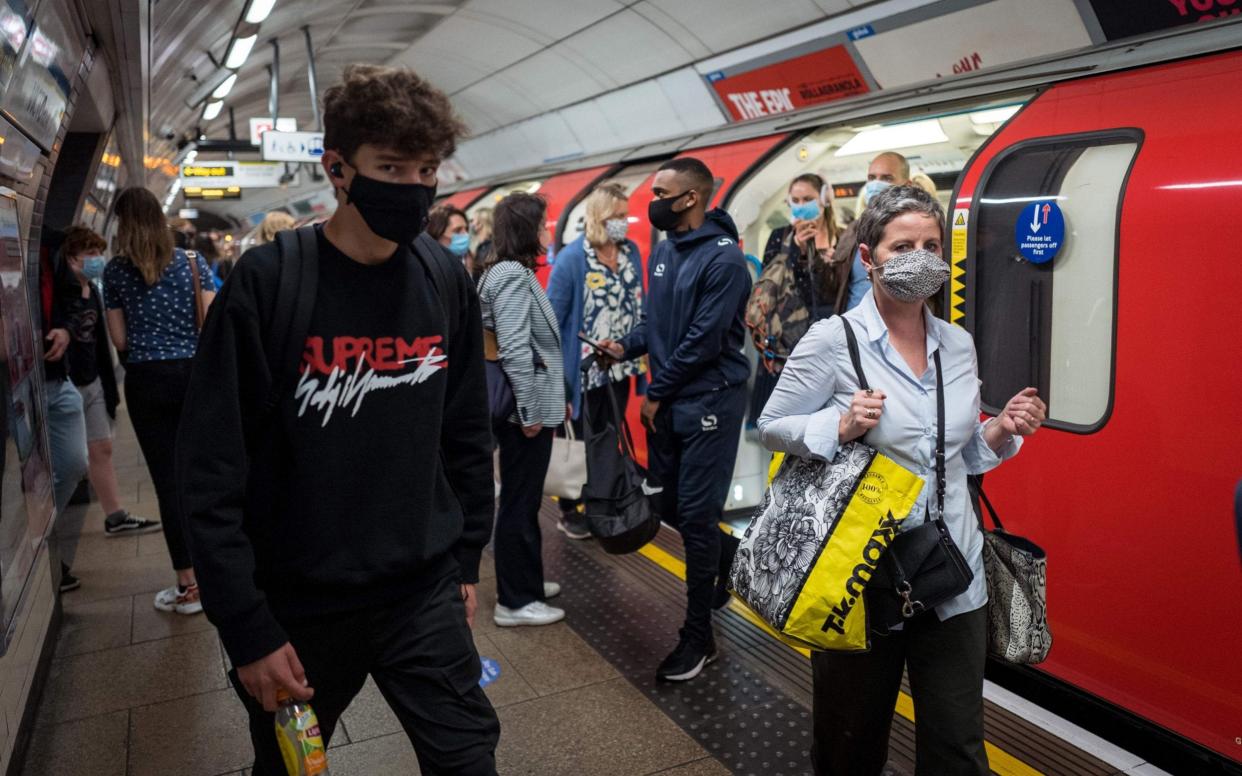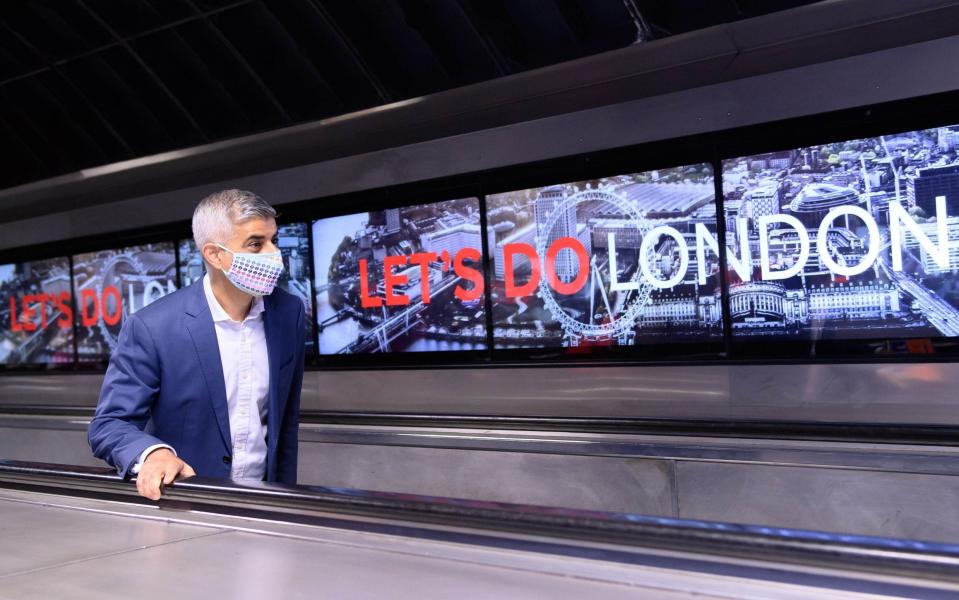Face mask law to end on July 19 but businesses can set their own rules

- Oops!Something went wrong.Please try again later.
Legal regulations forcing Britons to wear face masks indoors are set to be scrapped from July 19 – but businesses can set the rules on their own premises, Boris Johnson has announced.
The Prime Minister has said that, at the end of his roadmap out of restrictions, face coverings will no longer be mandatory under the law, with individuals instead encouraged to "exercise judgment".
Transport operators and shops will be given permission to decide their own policy, setting conditions for their own premises while remaining mindful of equality law.
The Prime Minister's official spokesman said: "The legal requirement for face coverings will be removed, although guidance will suggest where you might choose to do so, such as in enclosed and crowded spaces."
Government advice is expected to stress that wearing a mask can reduce a person's risk of catching Covid as well as reducing that person's risk of spreading it in crowded settings. However, it will be up to individuals whether to wear a mask, with ministers emphasising a move away from top-down edicts to personal responsibility.
It is understood the Government has not conducted specific modelling on how many people are expected to continue to wear masks once the requirement is lifted. Polling released on Monday suggested the move to scrap the requirement would be unpopular with the public.
More than seven in 10 Britons (71 per cent) said masks should continue to be mandatory on public transport for a further period of time, while 66 per cent said they should remain obligatory for shops, according to a survey by YouGov.
The change will come into effect at step four of the roadmap, pencilled in for July 19. The Government will confirm on July 12 whether it is set to go ahead on that date, depending on the latest data. Ministers will make it clear that the move can take place thanks to the protection provided by the vaccination programme.
Transport companies will be able to make masks a condition of carriage under the terms and conditions of tickets.
Budget airlines Ryanair and easyJet announced on Monday that they would continue to demand that all passengers wear masks once the legal requirement ends.
However, the ability of transport operators to enforce such rules or penalise those who breach them is mired in uncertainty.
Rail firms are able to levy penalty charges on people who ride their networks without the correct ticket thanks to laws that underpin those rules. It is understood the Government does not plan to alter this legislation to include breaches of face mask rules if transport companies implement them.
The Government's decision also heralds the possibility that travellers on cross-border trains within Britain may have to put on a mask when moving from England into Scotland or Wales, where face coverings remain mandatory.
Industry insiders warned on Monday that the removal of consistent rules on facemasks would spark confusion, while also threatening to undermine consumer and commuter confidence.
The British Retail Consortium aired concerns about shop workers' safety, with a spokesman saying: "Enforcing Covid rules has led to an increase in violence and abuse against shop workers, and the Government will need to ensure that any changes to the rules are clear and consistent."
On Monday, Sadiq Khan, the Mayor of London, set out his support for the retention of face masks after step four. He and the Transport for London (TfL) commissioner agreed that mandatory face coverings remained the "simplest and safest option" on public transport in the capital.

Mr Khan's spokesman acknowledged that "any divergence of rules across different modes of transport [is] complex as well as confusing for passengers".
It is also understood that TfL has judged that it will be difficult to deviate from nationwide regulations on masks due to the terms of its funding agreement.
"TfL will have discussions with other train operating companies and the DfT about next steps and how to ensure passengers have the confidence to use public transport," the spokesman said.
No traces of Covid have been found on the public transport network during monthly swab testing undertaken by Imperial College London since September. The study has involved taking swab tests at touch points in stations and on buses, as well as collecting air samples in ticket halls.
Ahead of Mr Johnson's announcement, Britain's largest trade union demanded that face coverings remain mandatory on public transport after the end of the roadmap out of restrictions.
Unite said it would be "gross negligence" to end the requirement on July 19, insisting the current regulations "provide reassurance to drivers and to passengers who are nervous about using public transport".
Mick Lynch, the general secretary of the Rail, Maritime and Transport union, accused the Government of allowing a "free-for-all" in contradiction of common sense and medical advice that "seems to indicate that some level of control should remain in place in the public realm".

